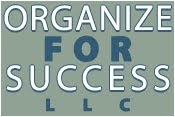 |
| Communicate With Team & Clients |
First, since you'll need to notify customers, vendors and employees alike of your operation plans as well as how to interact with you during each step of the recovery process, sustain contact records so they are always up-to-date. You will want to make sure you have the most accurate phone numbers and email addresses to reach each of these partners in any emergency.
Consider the following when creating your business' preparedness plan for any sort of emergency:
1. Your team members need to know how to respond, including when to report to what location for work. Where should employees look for necessary directives? Will these be on a website, sent via email or text, recorded on a voice mail greeting to which they can call in or communicated in an alternative fashion?
2. Different team members fulfill different functions for your company, meaning each employee might need different directives to continue their jobs in an emergency situation. Which team members will need to know what?
3. Every business partners with others to function. What questions will arise from vendors about how business will continue? How can you communicate that information to those partners beforehand as well as reminding them of the details in the emergency itself?
4. There is no business without customers, and your clients will need clarity on certain details. How will you notify them of your operating plans and the ways they can interact with you? If you have to temporarily relocate, will your contact information remain the same? How will this impact your hours of operation? Will there be a break in service or a change to how they make payments?
5. Beyond your existing customers, there are always prospects considering your company's products or services. Is a press release necessary to alert the general public of your plans?
Catch a summary video of these points by clicking here; then, as you contemplate each of the aforementioned details, engage your entire team in the planning process. Each employee will have a different perspective and bring new ideas to the process.
Plan maintenance is key... Things change and evolve; therefore, make sure to review your plans and supplies every 6 months, ensuring all updates are clearly and completely conveyed to all concerned parties. Train each new hire immediately as that person joins your team. Conduct fire and emergency drills regularly for each possible scenario, including regular reviews of how to operate your fire extinguishers. Include regular training for all team members on First Aid, CPR and AED through your Red Cross or local medical facility. Test your smoke alarms monthly, changing the batteries twice a year and replacing every 10 years. Then, when disaster does strike, document how it worked for the future.
Are you prepared with a communication plan for your customers, team members and vendor partners? What's worked well for you, and how do you maintain this plan?

No comments:
Post a Comment